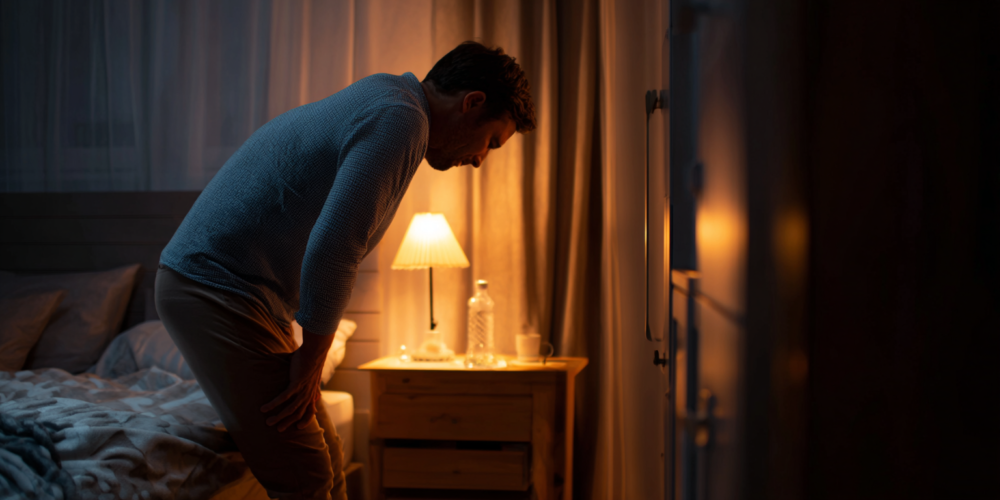
Feeling tired all the time can really mess with your day. It’s like your body just doesn’t want to cooperate, no matter how much you try to push through. This article is all about figuring out why you might be feeling so drained and what you can do to get your energy back. We’ll look at some common reasons for feeling tired and offer simple, practical tips to help you feel more like yourself again.
📌Why You Are TIRED All the Time
If you’re constantly feeling run down, you’re not alone. Many things can zap your energy, and sometimes it’s a combination of factors. Let’s break down some of the main culprits and what you can do about them.

👉Key Takeaways
- Sleep is super important: Not getting enough quality sleep is a big reason for feeling tired. Things like alcohol, too much exercise, or eating late can mess with your sleep.
- Your thyroid plays a role: This little gland controls your energy. If it’s not working right, you’ll feel it.
- Stress is a silent energy thief: Both big, sudden stresses and ongoing, low-level stress can make you feel exhausted.
- Food sensitivities can be sneaky: Some foods might be causing issues you don’t even realize, like histamine overload or blood sugar swings.
- Protein powers you up: Not eating enough good quality protein can leave you feeling weak and tired.
➡️7. The Sleep Factor

It might seem obvious, but a big reason people feel tired is simply not getting enough good sleep. But it’s not just about the hours you spend in bed; it’s about the quality of that sleep. Here’s what can get in the way:
- Alcohol: While it might make you feel sleepy at first, alcohol actually stops you from getting into the deep, restful stages of sleep. So, you wake up feeling like you haven’t really rested.
- Too Much Exercise: Believe it or not, overdoing your workouts can rev up your body and make it harder to wind down for sleep. It’s all about finding that balance.
- Eating Late: If you eat a big meal right before bed, your body is busy digesting instead of getting ready for sleep. Try to eat earlier in the evening.
- Chocolate: Yep, even chocolate can be a problem. It has something called theobromine, which is a bit like caffeine. If you eat it too late, it can keep you awake.
So, what can you do to get better sleep?
- Magnesium: This mineral is great for relaxing your muscles. Taking magnesium glycinate about an hour before bed can really help you chill out. If you have muscle cramps or tightness, magnesium is often the answer.
- Vitamin B1: If you’re low on B1, you might feel restless or have your mind racing, which makes sleep tough. This often happens if you’re super stressed or eat a lot of carbs.
- Morning Sunlight: This is a simple but powerful trick. Spend 10-15 minutes outside between 6 and 8:30 AM, just looking in the direction of the sunrise (don’t stare directly at the sun!). This helps set your body’s internal clock and can really improve your sleep. Just make sure you’re actually outside, not behind a window.
➡️6. Your Thyroid and Energy

Your thyroid gland makes hormones that go into every cell in your body. These hormones control your metabolism and, you guessed it, your energy levels. If your thyroid isn’t working well, you’re going to feel tired. Sometimes, the problem isn’t just the thyroid itself, but how your body uses its hormones.
One common issue is not getting enough selenium. This mineral is super important for thyroid function. Where can you find selenium?
- Brazil nuts
- Sardines
- Shellfish
- Grass-fed liver
These foods are great sources to help support your thyroid.
➡️5. The Impact of Stress

Stress is a huge energy drainer, and it comes in a couple of forms. There’s the big, sudden stress, like losing someone close to you, and then there’s the ongoing, low-level stress that just grinds you down.
- If this sounds like you, a lot of vitamin D can help. These viruses often try to block your body from using vitamin D, so taking a higher dose (like 30,000 or 40,000 IUs of D3) can help put them back to sleep and get your energy back.
- Chronic Low Stress: Even if it’s not a huge event, constant stress can make you tired and mess with your sleep. Here are some ways to fight back:
➡️4. Histamine Overload

Your body naturally breaks down histamine, a chemical involved in immune responses. But sometimes, things can go wrong, and you end up with too much histamine, which can make you feel tired. What can cause this?
- Alcohol: It can mess with the enzyme that breaks down histamine.
- Certain Medications: Some medicines can also interfere.
- Gut Damage: If your gut isn’t healthy, it can affect how your body handles histamine.
If you suspect histamine sensitivity, you might want to avoid certain foods that are high in histamine:
- Aged cheeses
- Vinegar (even apple cider vinegar)
- Canned fish
- Fermented vegetables (like sauerkraut or kimchi)
If you feel tired after eating these, try cutting them out for a bit to see if it helps.
➡️3. Blood Sugar Swings

Eating a lot of carbs or sugar during the day can cause your blood sugar to go on a rollercoaster ride. It spikes up, then crashes down, especially at night. These ups and downs can wake you up in the middle of the night, which means you’re not getting good, continuous sleep. And when you’re not sleeping well, you’re going to feel tired during the day.
Also, eating a lot of carbs can use up your vitamin B1, which can lead to restless legs syndrome. This can also wake you up and make it hard to get back to sleep.
➡️2. Other Sleep Disturbances

Beyond what we’ve already talked about, a few other things can really mess with your sleep:
- Sleep Apnea: This is more than just snoring. It means you stop breathing for short periods during sleep, which means your brain isn’t getting enough oxygen. This can wake you up. Interestingly, recent research found that a fatty tongue can block airways. Losing weight can help reduce this fat. Also, some people find that taking a probiotic can help with sleep apnea, possibly by improving gut health. Taping your mouth at night to encourage nose breathing can also help, as nose breathing gets more oxygen into your lungs.
- Room Temperature: Your body needs to cool down a bit to get into deep sleep. If your room is too warm, it can be hard to get truly restful sleep. Try keeping your room a little cooler.
- Cold Feet: On the flip side, if your feet are too cold, it can also make it hard to sleep. A simple trick? Warm up some socks (maybe in the dryer) and put them on before bed. Studies show this can add an extra 30 minutes of sleep!
- Frequent Urination at Night: Waking up to pee all the time is a huge energy killer. This is often caused by snacking too much or eating too many carbs, especially later in the day. Cutting back on carbs can often solve this.
➡️1. The Power of Protein

This might be the most common and important tip of all: if you’re not eating enough high-quality protein, you’re probably going to feel tired. Protein is essential for energy, especially for your brain.
Try this: at every meal, make sure you’re getting a good amount of quality protein, like meat. It’s a simple change, but it can make a huge difference in your energy levels. Don’t just grab any protein; focus on good, wholesome sources.
All these tips are things that can really help you get your energy back. Give them a try and see how you feel!
Source: Dr. Eric Berg

